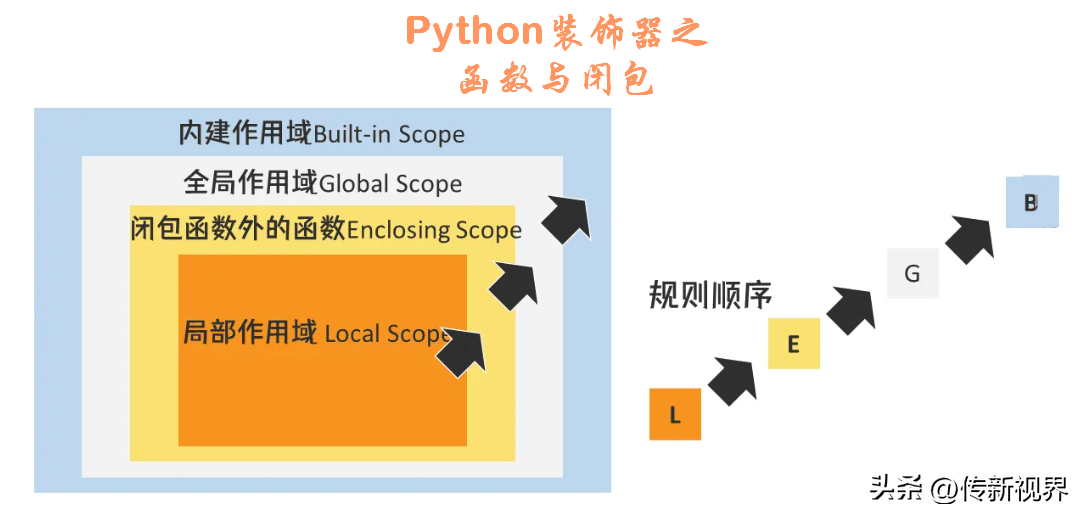 Backend Development
Backend Development Python Tutorial
Python Tutorial Python metaprogramming: starting the subversive journey of geek programming
Python metaprogramming: starting the subversive journey of geek programming
python YuanProgramming: The combination of infinite possibilities and extreme elegance
Enter Python The palace of metaprogramming, you will embark on a wonderful journey that subverts traditional programming concepts. Metaprogramming, also known as metaprogramming or meta-metaprogramming, is a powerful technique that allows developers to manipulate and modify Python code in a way that was never possible before. It is essentially programmer's abstraction of the Python interpreter, allowing you to control the behavior of the program from a higher level, just like commanding thousands of troops from a panoramic view.
The weapon of metaprogramming: metaclass
Metaclasses are classes that create classes in Python. Through metaclasses, you can define custom class behavior and control the class creation process. This allows you to create classes with unusual properties and behavior, and even change the syntax of the class. For example, you can define a metaclass to create classes with tuple form, or a metaclass to generate classes with automatic properties.
class TupleMeta(type): def __new__(cls, name, bases, dct): return tuple(super().__new__(cls, name, bases, dct)) class MyTuple(metaclass=TupleMeta): a = 1 b = 2 print(MyTuple)# 输出:(1, 2)
The secret of metaprogramming: dynamic programming
Another powerful feature of metaprogramming is dynamic programming. It allows you to modify or generate code at runtime. This greatly increases the flexibility of Python, allowing you to create more adaptable applications. For example, you can use dynamic programming to create dynamically loaded modules or classes, or to generate custom functions that meet specific needs.
def create_function(name, code):
exec(f"def {name}():
{code}")
return locals()[name]
add_function = create_function("add", "return a + b")
print(add_function(1, 2))# 输出:3
The wonderful use of metaprogramming: Reflection
Reflection is another important component of metaprogramming. It allows you to get detailed information about classes and objects and manipulate them. For example, you can use reflection to inspect a class's properties and methods, call methods or create new instances. Reflection enables you to dynamically inspect and modify code, allowing for more flexible programming.
class MyClass:
def __init__(self, name):
self.name = name
def greet(self):
print(f"Hello, I am {self.name}!")
obj = MyClass("John")
print(obj.__class__)# 输出:<class "__main__.MyClass">
print(obj.__dict__)# 输出:{"name": "John"}
obj.__class__.greet(obj)# 输出:Hello, I am John!
The Art of Metaprogramming: Code Generation
Metaprogramming also allows you to generate code. This allows you to create automation scripts for repetitive tasks, or generate custom code that works for specific situations. For example, you can use the code generator to generate multiple classes with the same structure, or to generate sql queries that meet specific needs.
def generate_class(name, attributes):
class_definition = f"class {name}:
"
for attr in attributes:
class_definition += f"{attr} = None
"
return class_definition
class_definition = generate_class("Person", ["name", "age"])
exec(class_definition)
person = Person()
person.name = "John"
person.age = 25
print(person.name, person.age)# 输出:John 25
The finishing touch of metaprogramming: decorators
Decorator is a special syntax structure in Python that allows you to modify the behavior of a function without modifying the function source code. They are essentially a form of metaprogramming because they allow you to modify functions dynamically. Decorators can be used by using the @ symbol before the function definition.
def my_decorator(func):
def wrapper(*args, **kwargs):
print("Before calling the function")
result = func(*args, **kwargs)
print("After calling the function")
return result
return wrapper
@my_decorator
def greet(name):
print(f"Hello, {name}!")
greet("John")# 输出:
# Before calling the function
# Hello, John!
# After calling the function
Conclusion
Python metaprogramming provides you with a powerful set of tools that enable you to manipulate and modify Python code in a whole new way. With metaprogramming, you can create classes with unusual properties and behaviors, dynamically load modules or classes, inspect and modify code, generate code, and even modify the behavior of functions. Metaprogramming opens the door to geeky programming, making your Python code more flexible, dynamic, and adaptable.
The above is the detailed content of Python metaprogramming: starting the subversive journey of geek programming. For more information, please follow other related articles on the PHP Chinese website!
 解决Java反射异常(ReflectiveOperationException)的方法Aug 26, 2023 am 09:55 AM
解决Java反射异常(ReflectiveOperationException)的方法Aug 26, 2023 am 09:55 AM解决Java反射异常(ReflectiveOperationException)的方法在Java开发中,反射(Reflection)是一种强大的机制,它允许程序在运行时动态地获取和操作类、对象、方法和属性等。通过反射,我们可以实现一些灵活的功能,比如动态创建对象、调用私有方法、获取类的注解等。然而,使用反射也会带来一些潜在的风险和问题,其中之一就是反射异常(
 手把手教你用装饰器扩展 Python 计时器Apr 13, 2023 pm 08:46 PM
手把手教你用装饰器扩展 Python 计时器Apr 13, 2023 pm 08:46 PM这是我们手把手教你实现 Python 定时器的第三篇文章。前两篇:分别是手把手教你实现一个 Python 计时器,和用上下文管理器扩展 Python 计时器,使得我们的 Timer 类方便用、美观实用。但我们并不满足于此,仍然有一个用例可以进一步简化它。假设我们需要跟踪代码库中一个给定函数所花费的时间。使用上下文管理器,基本上有两种不同的选择:1. 每次调用函数时使用 Timer:with Timer("some_name"): do_something()当我们在一
 Python中的装饰器和上下文管理器是如何工作的?Oct 20, 2023 pm 07:04 PM
Python中的装饰器和上下文管理器是如何工作的?Oct 20, 2023 pm 07:04 PMPython中的装饰器和上下文管理器是如何工作的?在Python中,装饰器和上下文管理器是两个非常有用的概念和功能。它们都是为了简化代码、增加代码可读性以及方便代码的重用。一、装饰器装饰器是Python中一种用于修改函数的行为的特殊函数。它允许我们在不修改原始函数的情况下对其进行包装或拓展。装饰器在许多Python的框架和库中被广泛使用,比如Flask、Dj
 Golang函数的反射和类型断言的应用和底层实现May 16, 2023 pm 12:01 PM
Golang函数的反射和类型断言的应用和底层实现May 16, 2023 pm 12:01 PMGolang函数的反射和类型断言的应用和底层实现在Golang编程中,函数的反射和类型断言是两个非常重要的概念。函数的反射可以让我们在运行时动态的调用函数,而类型断言则可以帮助我们在处理接口类型时进行类型转换操作。本文将深入讨论这两个概念的应用以及他们的底层实现原理。一、函数的反射函数的反射是指在程序运行时获取函数的具体信息,比如函数名、参数个数、参数类型等
 使用上下文装饰器调试Pytorch的内存泄漏问题Apr 10, 2023 am 11:31 AM
使用上下文装饰器调试Pytorch的内存泄漏问题Apr 10, 2023 am 11:31 AM装饰器是 python 上下文管理器的特定实现。本片文章将通过一个pytorch GPU 调试的示例来说明如何使用它们。虽然它可能不适用于所有情况,但我它们却是非常有用。调试内存泄漏问题有很多方法可以调试内存泄漏。本文将展示一种识别代码中有问题的行的有用方法。该方法可以有助于以简洁的方式找到具体的位置。逐行手动调试如果遇到问题,一种经典的且常用的方法是使用调试器逐行检查,比如下面的例子:在搜索引擎查找有关如何计算 pytorch 中所有张量总数的代码片段,比如:tensor-counter-s
 一文读懂 Python 装饰器Apr 12, 2023 pm 09:40 PM
一文读懂 Python 装饰器Apr 12, 2023 pm 09:40 PMPython 是一种对新手很友好的语言。但是,它也有很多较难掌握的高级功能,比如装饰器(decorator)。很多初学者一直不理解装饰器及其工作原理,在这篇文章中,我们将介绍装饰器的来龙去脉。在 Python 中,函数是一种非常灵活的结构,我们可以把它赋值给变量、当作参数传递给另一个函数,或者当成某个函数的输出。装饰器本质上也是一种函数,它可以让其它函数在不经过修改的情况下增加一些功能。这也就是「装饰」的意义,这种「装饰」本身代表着一种功能,如果用它修饰不同的函数,那么也就是为这些函数增加这种功
 Python编程:装饰器之有关函数的再认知May 27, 2023 pm 03:57 PM
Python编程:装饰器之有关函数的再认知May 27, 2023 pm 03:57 PM装饰器(Decorators)是Python中非常有用的工具。装饰器是以另一个函数为参数并扩展其功能而不显式修改它的函数。它允许我们修改函数或类的行为而不涉及其源代码。换句话说,装饰器包装一个函数是为了扩展它的行为,而不是永久地修改它。从这篇开始,就来研究下装饰器是啥以及是如何在Python中工作的。1.1关于函数为了理解装饰器是如何工作的,我们需要重新回顾Python中关于函数的一些重要概念。时刻意识到,在Python中,函数(function)的地位是一等公民,所以下面几个观念要牢记:ü函
 Python中装饰器的常见问题及解决方案Oct 10, 2023 am 11:58 AM
Python中装饰器的常见问题及解决方案Oct 10, 2023 am 11:58 AMPython中装饰器的常见问题及解决方案什么是装饰器?装饰器是Python中一种非常强大的功能,可以用来修改已有函数或类的行为,而无需修改其源代码。装饰器实际上是个函数或类,它接受一个函数或类作为参数,然后返回一个新的函数或类。如何编写一个简单的装饰器?下面是一个简单的装饰器示例:defdecorator(func):definner_func


Hot AI Tools

Undresser.AI Undress
AI-powered app for creating realistic nude photos

AI Clothes Remover
Online AI tool for removing clothes from photos.

Undress AI Tool
Undress images for free

Clothoff.io
AI clothes remover

AI Hentai Generator
Generate AI Hentai for free.

Hot Article

Hot Tools

Notepad++7.3.1
Easy-to-use and free code editor

SAP NetWeaver Server Adapter for Eclipse
Integrate Eclipse with SAP NetWeaver application server.

EditPlus Chinese cracked version
Small size, syntax highlighting, does not support code prompt function

PhpStorm Mac version
The latest (2018.2.1) professional PHP integrated development tool

SublimeText3 Chinese version
Chinese version, very easy to use






